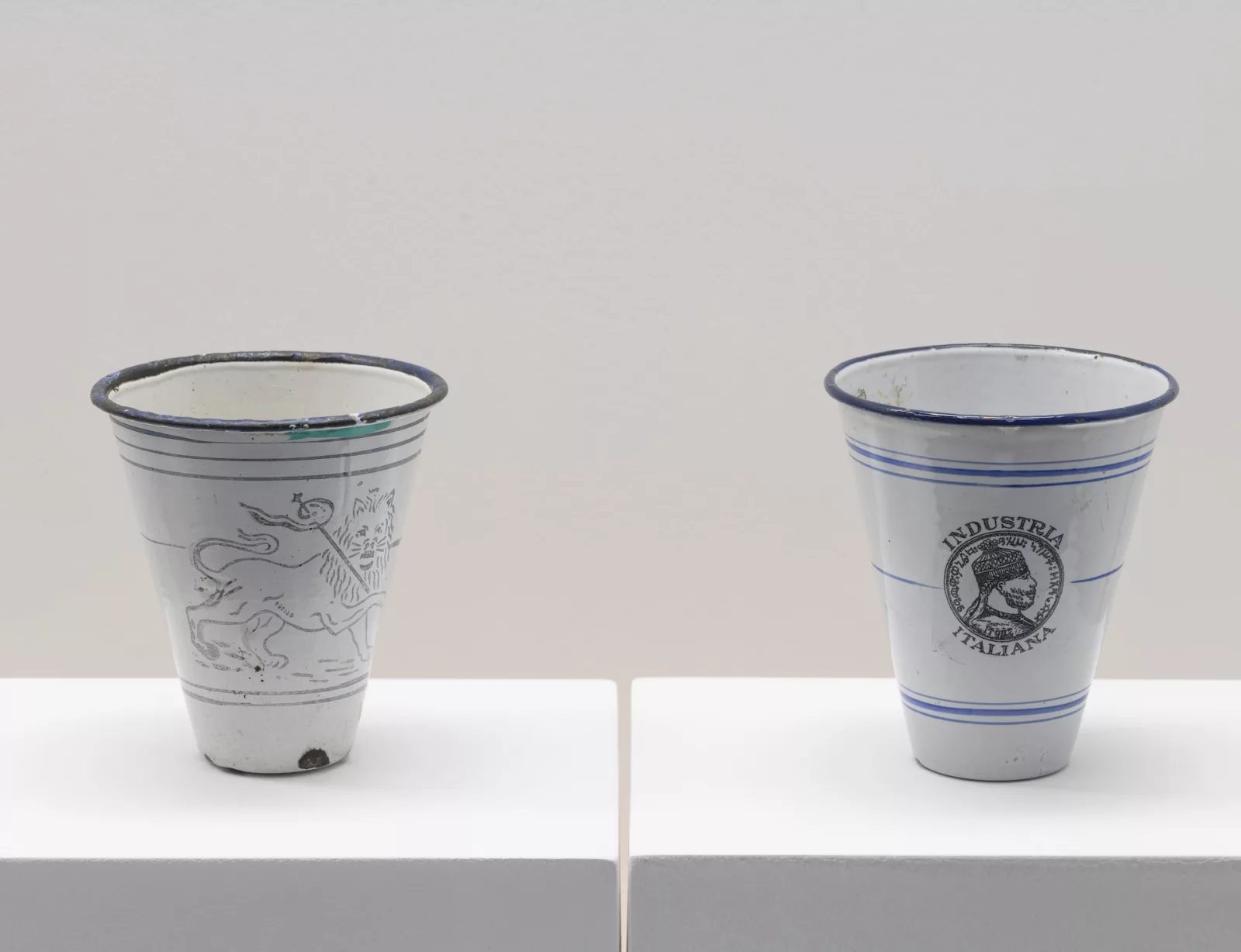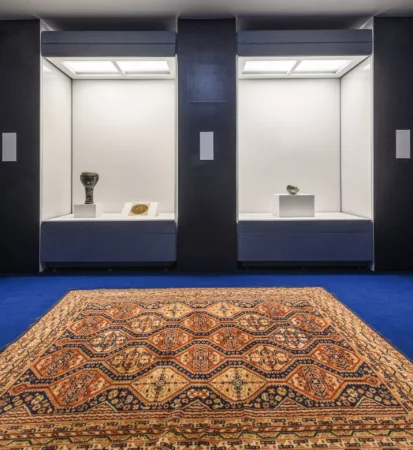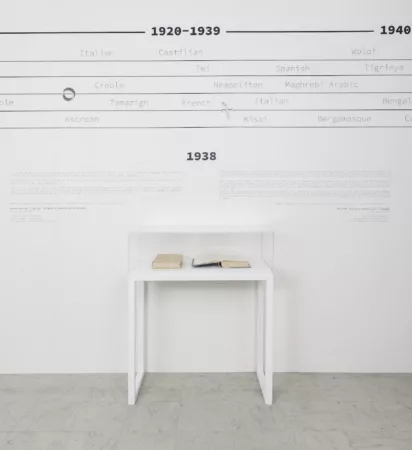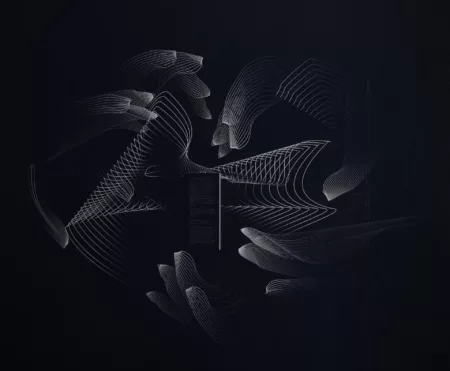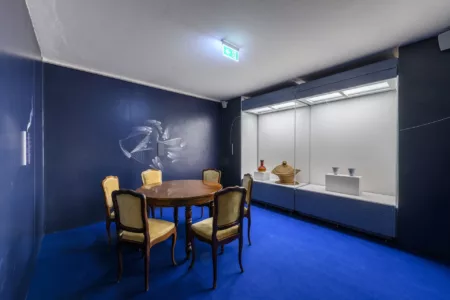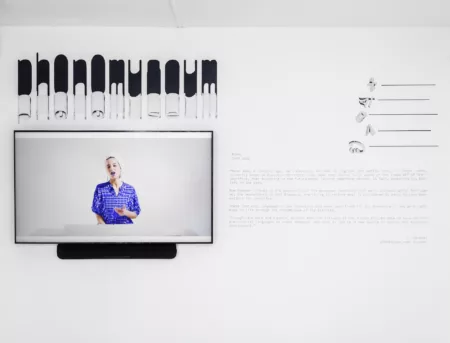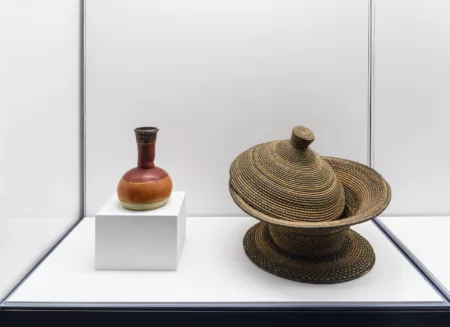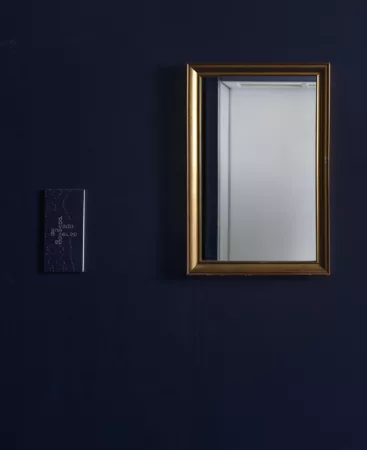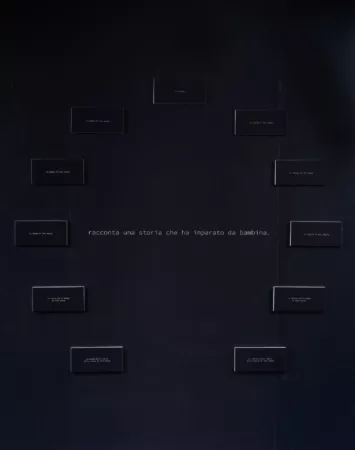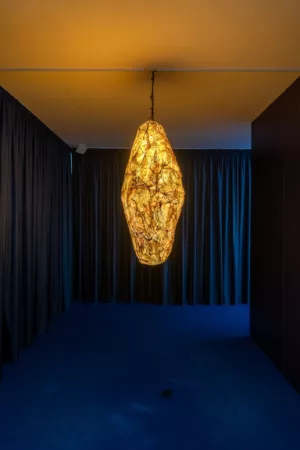Transforming the exhibition spaces into the hypothetical rooms of the ph0n0museum.rome, a museum of the future imagined as opening in 2152, this installation reflects on the effect linguistic imposition plays on five “pre-colonial languages” —Tigrinya, Tashilhit, Wolof, Pulaar, and Bengali—in colonization processes. As controlled and conditioned by the Europeans who colonized their speakers and their territories, these languages are provocatively imagined here as museified relics of the presence of diasporic inhabitants in Rome in 2022–23 (the present epoch that in the ph0n0museum.rome is imagined as having already ended).
Introduction by Matteo Lucchetti
The fruit of collective production, this installation raises important questions: if these languages are pitted one-on-one against colonizing “dominant languages” because they are deemed incapable of emerging outside their domestic context, will they subsequently become relics that will only be “rediscovered” in Western museums and academic context after they have gone extinct? If these native languages were to acquire both a feminist and an anti-colonial perspective, how would they behave? In selecting a series of everyday objects from the former Colonial Museum of Rome taken from colonized territories and placed on display for purposes of propaganda, the collective also worked with a number of Afro-descendant communities and individuals in Rome during the art residency at the Museum of Civilizations. Cups, plates, shoes, textiles, and clothes are di- splayed here as objects liberated from colonial narratives and reinserted into domestic environments acoustically populated with voices, evoking the connection of the objects themselves with the daily lives of the people from whom they were taken. No translation is offered to the visitor because in this linguistic and poetic experiment translation itself is being questioned. The process pursued suggests a museum/home of de-colonization and diaspora in which to enable participatory narratives that radically rethink the museum institution’s role of caring for the objects it preserves.

